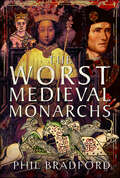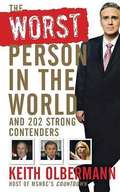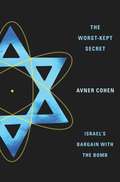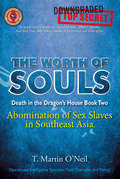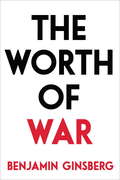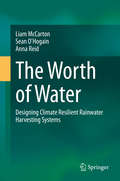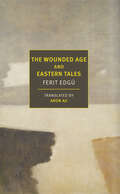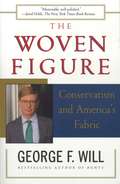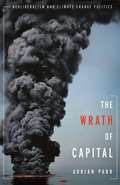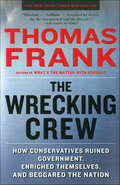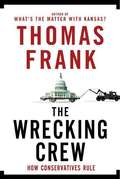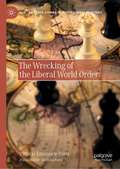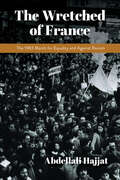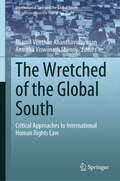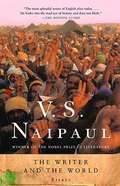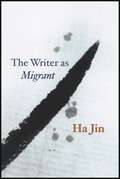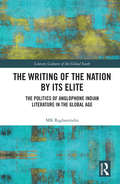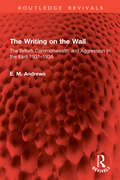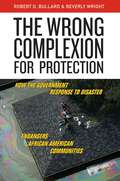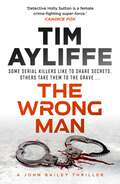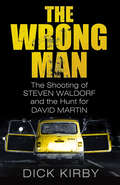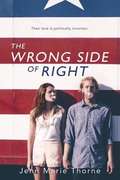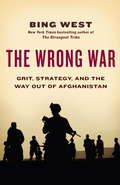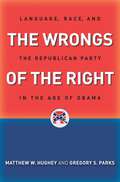- Table View
- List View
The Worst Medieval Monarchs
by Phil BradfordStephen. John. Edward II. Richard II. Richard III. These five are widely viewed as the worst of England’s medieval kings. Certainly, their reigns were not success stories. Two of these kings lost their thrones, one only avoided doing so by dying, another was killed in battle, and the remaining one had to leave his crown to his opponent. All have been seen as incompetent, their reigns blighted by civil war and conflict. They tore the realm apart, failing in the basic duty of a king to ensure peace and justice. For that, all of them paid a heavy price. As well as incompetence, some also have reputations for cruelty and villainy, More than one has been portrayed as a tyrant. The murder of family members and arbitrary executions stain their reputations. All five reigns ended in failure. As a result, the kings have been seen as failures themselves, the worst examples of medieval English kingship. They lost their reputations as well as their crowns. Yet were these five really the worst men to wear the crown of England in the Middle Ages? Or has history treated them unfairly? This book looks at the stories of their lives and reigns, all of which were dramatic and often unpredictable. It then examines how they have been seen since their deaths, the ways their reputations have been shaped across the centuries. The standards of their own age were different to our own. How these kings have been judged has changed over time, sometimes dramatically. Fiction, from Shakespeare’s plays to modern films, has also played its part in creating the modern picture. Many things have created, over a long period, the negative reputations of these five. Today, they have come to number among the worst kings of English history. Is this fair, or should they be redeemed? That is the question this book sets out to answer.
The Worst Person in the World: And 202 Strong Contenders
by Keith OlbermannThe stinkers, the rascals, the reprobates ... and the just plain dumb. (Yes, Bill, he's talking about you.) Geraldo Rivera. The Coca-Cola Company. Victoria Gotti. Tom Cruise. Various members of the Bush administration. All have earned the dishonor of "Worst Person in the World," awarded by MSNBC's witty and controversial reporter Keith Olbermann on his nightly MSNBC show Countdown with Keith Olbermann. Now, he brings all his bronze, silver, and gold medalists together in this wildly entertaining collection that reveals just how twisted people can be--and how much fun it is to call them out on it. From tongue-in-cheek observations to truly horrific accounts, Olbermann skewers both the mighty and the meek, the well-known and the anonymous for their misdeeds, including: Ann Coulter, for, among other things, calling Muslims "ragheads" in a speech to the Conservative Political Action Conference in Washington; Barbara Bush, for making a generous donation to the Hurricane Katrina Relief Fund earmarked exclusively for the purchase of computer software ... software sold by her son, Neil; The staff of Your World with Neil Cavuto, for the story about the murders of Iraqi civilians that was accompanied by the on-screen graphic: "All-out Civil War in Iraq: Could It Be a Good Thing?". Olbermann also reports on some of the recent fallout from his awards, such as the controversy with John Gibson and the mysterious disappearance of remarks about Cindy Sheehan on Rush Limbaugh's Web site. Plus, he reveals the winner of the most coveted award of all: "Worst in Show."
The Worst-Case Scenario Almanac: Politics
by David Borgenicht Turk ReganLeave it to the experts of the best-selling Worst-Case Scenario series to ferret out the most scandalous, dangerous, incompetent, and downright awful people to ever seek power. The most lavish palaces, the bloodiest coups, the stupidest declarations. . . . Plus all the lists, charts, maps, and profiles that have made the Worst-Case Scenario Almanacs such a success. Which country had more governments in the past 175 years--Italy or Bolivia? What ever happened to all those people who ran for vice president of the United States of America--and lost? Illustrated, step-by-step scenarios describe how to respond when confronted with misfortune or challenge, including how to give a concession speech, kiss a drooling baby, escape a sex scandal, and evade the truth.
The Worst-Kept Secret
by Avner CohenIsrael has made a unique contribution to the nuclear age. It has created a special "bargain" with the bomb. Israel is the only nuclear-armed state that does not acknowledge its possession of the bomb, even though its existence is a common knowledge throughout the world. It only says that it will not be the first to introduce nuclear weapons to the Middle East. The bomb is Israel's collective ineffable-the nation's last great taboo. This bargain has a name: in Hebrew, it is called amimut, or opacity. By adhering to the bargain, which was born in a secret deal between Richard Nixon and Golda Meir, Israel has created a code of nuclear conduct that encompasses both governmental policy and societal behavior. The bargain has deemphasized the salience of nuclear weapons, yet it is incompatible with the norms and values of a liberal democracy. It relies on secrecy, violates the public right to know, and undermines the norm of public accountability and oversight, among other offenses. It is also incompatible with emerging international nuclear norms. Author of the critically acclaimed Israel and the Bomb, Avner Cohen offers a bold and original study of this politically explosive subject. Along with a fair appraisal of the bargain's strategic merits, Cohen critiques its undemocratic flaws. Arguing that the bargain has become increasingly anachronistic, he calls for a reform in line with domestic democratic values as well as current international nuclear norms. Most ironic, he believes Iran is imitating Israeli amimut. Cohen concludes with fresh perspectives on Iran, Israel, and the effort toward global disarmament.
The Worth of Souls: Abomination of Sex Slaves in Southeast Asia
by T. Martin O’NeilThe inky, black room and the horrible smells left little doubt this was a dungeon; a wretched hell intended to defeat the spirit and humanity of those it confined. The occupants were children, thrust into the hell they now faced through no act of their own, but by the depraved and morally bankrupt men and women who sold their lives and young bodies to fulfill their own greed. The door cracked open ever so slightly. Into the blackness, a wretch of a man crept. The dim, back-light of the outside hallway showed his skinny, almost bald figure as if it were in a spotlight. His torn, ragged clothes hung on a dirty, pox-scarred body. The rope holding up his bloomer-like pants was untied. His almost toothless, evil grin screamed his intentions. Each child shrank in fear from the sight before them. What had they ever done to deserve this nightmare? Did God hate them this much? Their fears were not sanctioned by governments, but by a depraved humanity. Members of SEAL Team One quietly entered the building after eliminating the feeble resistance of a few untrained guards. If discovered, it meant the SEALS caused all out war between two nations not yet at war for this was an armed invasion. These are the human stories; stories of the love of fellow man. Stories not found in the hate spewing news. Stories instead revealed from downgraded, classified files and told here in The Worth of Souls.
The Worth of War
by Benjamin GinsbergAlthough war is terrible and brutal, history shows that it has been a great driver of human progress. So argues political scientist Benjamin Ginsberg in this incisive, well-researched study of the benefits to civilization derived from armed conflict. Ginsberg makes a convincing case that war selects for and promotes certain features of societies that are generally held to represent progress. These include rationality, technological and economic development, and liberal forms of government. Contrary to common perceptions that war is the height of irrationality, Ginsberg persuasively demonstrates that in fact it is the ultimate test of rationality. He points out that those societies best able to assess threats from enemies rationally and objectively are usually the survivors of warfare. History also clearly reveals the technological benefits that result from war--ranging from the sundial to nuclear power. And in regard to economics, preparation for war often spurs on economic development; by the same token, nations with economic clout in peacetime usually have a huge advantage in times of war. Finally, war and the threat of war have encouraged governments to become more congenial to the needs and wants of their citizens because of the increasing reliance of governments on their citizens' full cooperation in times of war. However deplorable the realities of war are, the many fascinating examples and astute analysis in this thought-provoking book will make readers reconsider the unmistakable connection between war and progress.
The Worth of Water: Designing Climate Resilient Rainwater Harvesting Systems
by Anna Reid Sean O'Hogain Liam McCartonThere is no more fundamental substance to life on earth than water. Three quarter of the Earth’s surface is covered by either saltwater or freshwater, yet millions face a daily struggle to access enough water for survival. The effects of ongoing climate change have expanded the water crisis to areas previously considered water secure. This book addresses the role rainwater harvesting (rwh) can play in developing a resilient water infrastructure that will prove adaptive to climate change. The book features three sections. The first section presents the concepts underpinning a new approach to water infrastructure. The term “the worth of water” was developed to reflect the importance of the social life of water. This encompasses all human relationships with water including the social, cultural, hydrological, political, economic, technical and spiritual. A technology portfolio showcasing the worth of water from the Qanats of the ancient world to the modern Rain Cities is presented. Other concepts discussed include the circular economy of water and the concept of multiple waters for multiple users of multiple qualities. Water and its properties are a function of its peculiar molecular structure and this is illustrated in the book. Rainwater harvesting is considered by the authors as containing an inherent treatment train which functions as a complex water treatment system providing physical, chemical and biological removal mechanisms. Part two presents a new design methodology together with design templates and worked examples for the hydraulic and economic analysis of rwh systems. A state-of-the-art literature review of the potential health implications of utilizing rwh is also presented. The final section of the book discusses how rwh can play a vital role in contributing to achieving the Sustainable Development Goals and to living within the Planetary Boundaries.
The Wounded Age and Eastern Tales
by Ferit EdgüOne of Turkey's most celebrated writers explores themes of violence, otherness, and exile through a thrilling hybrid of poetry and prose that paints a vivid picture of Turkey's conflict-torn lands.In the two books paired here, translated into English for the first time, the great Turkish writer Ferit Edgü represents complex social and political realities with startling lyricism. The Wounded Age features a newspaper reporter from Istanbul, assigned to write about ethno-national violence in the mountains of eastern Turkey. Like the narrators in Eastern Tales, he is a stranger in a region where a buried history—the state&’s violence against Armenians, Greeks, and Assyrians—continues uninterrupted with the subjugation of the Kurds. Language in this place, especially the language of outsiders, cannot be trusted. In the story &“Interview,&” an old villager tells the narrator, &“Make our photograph,&” and adds, &“Send us the pictures. No need to write us letters.&” The minimal tales Edgü tells are vivid pictures of life in the East—a house in ruins, an empty crib, wolves howling in the hills—and transcriptions of living voices. The reporter in The Wounded Age has no illusions that his story will stop the bloodletting; instead, he goes east because he knows he must open his eyes and unstop his ears.
The Woven Figure
by George F. WillSwatches From The Century's End ...I cannot deny my past to which my self is wed, the woven figure cannot undo its thread. Louis MacNeice, "Valediction" These words express a truth of conservatism that has discomfited conservatives in the years covered by this volume. This collection of columns shows how, in the mid-1990s, conservatives fancied themselves poised to conduct a revolution, a radical reorientation of politics and governance. But in the late 1990s, they have discovered how resistant a complex nation is to being undone and rewoven. In this volume, George F. Will, distinguished political columnist and cultural critic, examines many episodes of the conservative tribulations and the liberal accommodations to the new political landscape. These writings present a map of the landscape, a guide for people perplexed by the gap between contemporary political theories and practices. With his customary linguistic flair and acerbic wit, Mr. Will tackles a wide range of subjects, including political correctness on college campuses; extreme fighting; the 1996 presidential campaign; judicial activism; ESPN; and Corvettes. These writings are history written on deadline, and together they constitute a richly woven tapestry of our era.
The Wrath of Capital: Neoliberalism and Climate Change Politics (New Directions in Critical Theory #48)
by Adrian ParrAlthough climate change has become the dominant concern of the twenty-first century, global powers refuse to implement the changes necessary to reverse these trends. Instead, they have neoliberalized nature and climate change politics and discourse, and there are indications of a more virulent strain of capital accumulation on the horizon. Adrian Parr calls attention to the problematic socioeconomic conditions of neoliberal capitalism underpinning the world's environmental challenges, and she argues that, until we grasp the implications of neoliberalism's interference in climate change talks and policy, humanity is on track to an irreversible crisis.Parr not only exposes the global failure to produce equitable political options for environmental regulation, but she also breaks down the dominant political paradigms hindering the discovery of viable alternatives. She highlights the neoliberalization of nature in the development of green technologies, land use, dietary habits, reproductive practices, consumption patterns, design strategies, and media. She dismisses the notion that the free market can solve debilitating environmental degradation and climate change as nothing more than a political ghost emptied of its collective aspirations. Decrying what she perceives as a failure of the human imagination and an impoverishment of political institutions, Parr ruminates on the nature of change and existence in the absence of a future. The sustainability movement, she contends, must engage more aggressively with the logic and cultural manifestations of consumer economics to take hold of a more transformative politics. If the economically powerful continue to monopolize the meaning of environmental change, she warns, new and more promising collective solutions will fail to take root.
The Wrecking Crew: How Conservatives Ruined Government, Enriched Themselves, and Beggared the Nation
by Thomas FrankFrom the author of the landmark bestseller What's the Matter with Kansas?, a jaw-dropping investigation of the decades of deliberate—and lucrative—conservative misruleIn his previous book, Thomas Frank explained why working America votes for politicians who reserve their favors for the rich. Now, in The Wrecking Crew, Frank examines the blundering and corrupt Washington those politicians have given us. Casting his eyes from the Bush administration's final months of plunder to the earliest days of the Republican revolution, Frank describes the rise of a ruling coalition dedicated to dismantling government. But rather than cutting down the big government they claim to hate, conservatives have simply sold it off, deregulating some industries, defunding others, but always turning public policy into a private-sector bidding war. Washington itself has been remade into a golden landscape of super-wealthy suburbs and gleaming lobbyist headquarters—the wages of government-by-entrepreneurship practiced so outrageously by figures such as Jack Abramoff.It is no coincidence, Frank argues, that the same politicians who guffaw at the idea of effective government have installed a regime in which incompetence is the rule. Nor will the country easily shake off the consequences of deliberate misgovernment through the usual election remedies. Obsessed with achieving a lasting victory, conservatives have taken pains to enshrine the free market as the permanent creed of state.Stamped with Thomas Frank's audacity, analytic brilliance, and wit, The Wrecking Crew is his most revelatory work yet—and his most important.
The Wrecking Crew: How Conservatives Rule
by Thomas Frank[From the Book jacket[ FROM THE BESTSELLING AUTHOR OF WHAT'S THE MATTER WITH KANSAS?, A JAW-DROPPING INVESTIGATION OF THE DECADES OF DELIBERATE-AND LUCRATIVE CONSERVATIVE MISRULE In his previous book, Thomas Frank explained why working America votes for politicians who reserve their favors for the rich. Now, in The Wrecking Crew, Frank examines the blundering and corrupt Washington those politicians have given us. Casting his eye back to the early days of the conservative revolution, Frank describes the rise of a ruling coalition dedicated to dismantling government. But rather than cutting down the big government they claim to hate, conservatives have simply sold it off, turning public policy into a private-sector bidding war. Washington itself has been remade into a golden landscape of super-wealthy suburbs and gleaming lobbyist headquarters-the wages of government-by entrepreneurship that has been practiced so outrageously by figures such as Jack Abramoff. It is no coincidence, Frank argues, that the same politicians who guffaw at the idea of effective government have installed a regime in which incompetence is the rule. Nor will the country easily shake off the consequences of deliberate misgovernment through the usual election remedies. Obsessed with achieving a lasting victory, conservatives have taken pains to enshrine the free market as the permanent creed of state.
The Wrecking of the Liberal World Order (Palgrave Studies in International Relations)
by Vittorio Emanuele ParsiThe ‘Liberal World Order’ (LWO) is today in crisis. But what explains this crisis? Whereas its critics see it as the unmasking of Western hypocrisy, its longstanding proponents argue it is under threat by competing illiberal projects. This book takes a different stance: neither internal hypocrisy, nor external attacks explain the decline of the LWO – a deviation from its original lane does. Emerged as a project aiming to harmonize state sovereignty and the market, through the promotion of liberal democracy domestically, and free trade and economic cooperation internationally, the LWO was hijacked in the 1980s: market forces overshadowed democratic forces, thus disfiguring the LWO into a Neoliberal Global Order. The book advocates for a revival of its original intellectual premises, that in the aftermath of World War II marked the zenith of political modernity.
The Wretched of France: The 1983 March for Equality and Against Racism (Public Cultures of the Middle East and North Africa)
by Abdellali HajjatIn 1983—as France struggled with race-based crimes, police brutality, and public unrest—youths from Vénissieux (working-class suburbs of Lyon) led the March for Equality and Against Racism, the first national demonstration of its type in France. As Abdellali Hajjat reveals, the historic March for Equality and Against Racism symbolized for many the experience of the children of postcolonial immigrants. Inspired by the May '68 protests, these young immigrants stood against racist crimes, for equality before the law and the police, and for basic rights such as the right to work and housing. Hajjat also considers the divisions that arose from the march and offers fresh insight into the paradoxes and intricacies of movements pushing toward sweeping social change. Translated into English for the first time, The Wretched of France contemplates the protest's lasting significance in France as well as its impact within the context of larger and comparable movements for civil rights, particularly in the US.
The Wretched of the Global South: Critical Approaches to International Human Rights Law (International Law and the Global South)
by Thamil Venthan Ananthavinayagan Amritha Viswanath ShenoyThe books aims to discuss and present an alternative epistemology of human rights, against the background of the globalization from below. The interdependent network of transnational networks, ranging from social movements, NGOs, and other groupings, questions the neoliberal paradigm and a particular set of human rights. This book wishes to transform this discourse on human rights and amplify the subaltern voices. The book also aims to highlight alternative practices of freedom that decenter human rights as a liberation discourse. Following Julia Suarez-Krabbe in “Race, Rights and Rebels”, the authors aim to amend to practices of freedom that center different orders of knowledge on subjectivity and agency. The proposed book, first, situates the problem of representation of the marginalized voices in contemporary legal and political discourse. Second, it offers critiques in theory, and, third, followed by alternative practices that emanate from marginalized localities. In particular, this book wishes to reflect upon alternatives rooted in legal and non-legal responses to address human rights grievances. In the end, this book envisages, along the lines of Frantz Fanon, to vision the possibility of the human by a new concept, addressing the concerns in various ways: As Fanon argued for “a new start”, “a new way of thinking”, and for the creation of a “new man”, it is pertinent to trigger a human rights project from the below.^
The Writer and the World: Essays
by V. S. NaipaulSpanning four decades and four continents, this magisterial volume brings together the essential shorter works of reflection and reportage by the Nobel Prize-winning author. &“The most splendid writer…. He looks into the mad eye of history and does not blink.&” —The Boston GlobeV.S. Naipaul is our most sensitive, literate, and undeceivable observer of the post-colonial world. In these pages, he trains his relentless moral intelligence on societies from India to the United States and sees how each deals with the challenges of modernity and the seductions of both the real and mythical past.Whether he is writing about a string of racial murders in Trinidad; the mad, corrupt reign of Mobutu in Zaire; Argentina under the generals; or Dallas during the 1984 Republican Convention, Naipaul combines intellectual playfulness with sorrow, indignation, and analysis so far-reaching that it approaches prophecy. The Writer and the World reminds us that he is in a class by himself.
The Writer as Migrant
by Ha JinHa Jin's journey from an uneducated soldier in the People's Liberation Army in China to a resident of the United States raises questions about language, migration, and the place of literature in a globalizing world.
The Writing of the Nation by Its Elite: The Politics of Anglophone Indian Literature in the Global Age (Literary Cultures of the Global South)
by MK RaghavendraThis volume examines the idea of India as it emerges in the writing of its anglophone elite, post-2000. Drawing on a variety of genres, including fiction, histories, non-fiction assessments – economic, political, and business – travel accounts, and so on, this book maps the explosion of English-language writing in India after the economic liberalization and points to the nation’s sense of its growing importance as a producer of culture. From Ramachandra Guha to William Dalrymple, from Arundhati Roy to Pankaj Mishra, from Jhumpa Lahiri to Amitav Ghosh, from Amartya Sen to Gurcharan Das, from Barkha Dutt to Tarun Tejpal, this investigation takes us from aesthetic imaginings of the nation to its fractured political fault lines, the ideological predispositions of the writers often pointing to an asymmetrically constituted India. A major intervention on how postcolonial India is written about and imagined in the anglophone world, this book will be of great interest to scholars and researchers of cultural studies, literature, history, and South Asian studies. It will also be of interest to general readers with an inclination towards India and Indian writing.
The Writing on the Wall: The British Commonwealth and Aggression in the East 1931–1935 (Routledge Revivals)
by E. M. AndrewsFirst published in 1987, The Writing on the Wall tells the story of the muddle, shortsightedness and duplicity which characterised Britain’s dealings with her Pacific Dominions. It describes the reactions of each Dominion and chronicles the desultory responses of Canada, Australia, and New Zealand to the developing crises in the North Pacific. The result is an important contribution to the history of all four continents. As the 1930s opened, the British Empire was everywhere recognised as a Great Power. Its rule extended over one-fifth of the earth’s land surface; it encompassed the largest population of any ‘State’ in the world; it controlled one-sixth of the world’s trade. In truth, the Empire was tragically fragile. Both Britain and the Dominions had disarmed to the point of impotence, so that when Japan occupied Manchuria in 1931 and attacked Shanghai, the centre of British trade in China, in the following year, they were unable to respond. British defence chiefs declared Japan’s success to be ‘the writing on the wall’. Despite these warnings, British politicians chose to appease the Japanese at the cost of seriously damaging the League of Nations, and to avoid spending money on defence in the Far East. Despite the concerns of the Dominions—Australia, New Zealand, and Canada—the scene was set for the total collapse of Britain’s Empire in the East within a decade. This book will be of interest to students and researchers of history.
The Wrong Complexion for Protection: How the Government Response to Disaster Endangers African American Communities
by Robert D. Bullard Beverly WrightUncovers the ways the United States government responds to natural and human-induced disasters in relation to race over the past eight decadesWhen the images of desperate, hungry, thirsty, sick, mostly black people circulated in the aftermath of Hurricane Katrina, it became apparent to the whole country that race did indeed matter when it came to government assistance. In The Wrong Complexion for Protection, Robert D. Bullard and Beverly Wright place the government response to natural and human-induced disasters in historical context over the past eight decades. They compare and contrast how the government responded to emergencies, including environmental and public health emergencies, toxic contamination, industrial accidents, bioterrorism threats and show that African Americans are disproportionately affected. Bullard and Wright argue that uncovering and eliminating disparate disaster response can mean the difference between life and death for those most vulnerable in disastrous times.
The Wrong Man (John Bailey #5)
by Tim AyliffeThe fifth novel in the John Bailey thriller series. Bailey is trying to solve two murders, ten years apart – unfinished business from his former flame Sharon Dexter. But will it cost him his life? When Sydney socialite Tottie Evans is found dead at a house in Palm Beach, Detective Holly Sutton is called in to investigate. She immediately suspects the boyfriend, a millionaire property developer and ex-mercenary soldier, who refuses to cooperate with police. Across the city, old-school reporter John Bailey – still haunted by the death of his girlfriend, former cop Sharon Dexter – gets a call about a break-in. It leads to the unearthing of an old case file on a murder at the men-only Sydney Club that Dexter had been pursuing a decade earlier. Her notes reveal a link between that murder and the killing of Tottie Evans. Suddenly, John Bailey and Holly Sutton have the same mission. And for Bailey, this is a chance to finish a job for the woman who saved his life. The only problem: a serial killer is already serving a life sentence for the Sydney Club murder.
The Wrong Man: The Shooting of Steven Waldorf and the Hunt for David Martin
by Dick KirbyDavid Ralph Martin was a cross-dressing criminal who carried out a string of sophisticated offences in the 1970s and ’80s. A prolific burglar, car thief, fraudster and gunman, he possessed a deep loathing of anyone in authority. In addition, he was a master of disguise and a veritable Houdini when it came to escaping from prison. After shooting a policeman during a botched burglary, he escaped from court on Christmas Eve, 1982. When police believed him to be in a yellow Mini in the Earls Court area with his girlfriend, they opened fire, only to discover they had shot an entirely innocent man – a 26-year-old film editor named Steven Waldorf. The investigation became a cause célèbre at the time, and was subsequently taken over by Scotland Yard’s Flying Squad, of which the author was a member. One of the biggest manhunts in the history of the Metropolitan Police ensued, before Martin was finally arrested after dramatically fleeing down the tracks between two Underground stations. Author Dick Kirby reveals for the first time the inside story of the hunt for ‘the most dangerous man in London’, whose eventual arrest brought to an end one of the most contentious investigations in Met history.
The Wrong Side of Right
by Jenn Marie ThorneFans of Sarah Dessen and Huntley Fitzpatrick will enjoy this smart debut young adult novel, equal parts My Life Next Door and The Princess Diaries--plus a dash of Aaron SorkinKate Quinn's mom died last year, leaving Kate parentless and reeling. So when the unexpected shows up in her living room, Kate must confront another reality she never thought possible--or thought of at all. Kate does have a father. He's a powerful politician. And he's running for U.S. President. Suddenly, Kate's moving in with a family she never knew she had, joining a campaign in support of a man she hardly knows, and falling for a rebellious boy who may not have the purest motives. This is Kate's new life. But who is Kate? When what she truly believes flies in the face of the campaign's talking points, she must decide. Does she turn to the family she barely knows, the boy she knows but doesn't necessarily trust, or face a third, even scarier option?Set against a backdrop of politics, family, and first love, this is a story of personal responsibility, complicated romance, and trying to discover who you are even as everyone tells you who you should be.
The Wrong War: Grit, Strategy, and the Way out of Afghanistan
by Bing WestAmerica cannot afford to lose the war in Afghanistan, and yet Americans cannot win it. In this definitive account of the conflict, acclaimed war correspondent and bestselling author Bing West provides a practical way out. Drawing on his expertise as both a combat-hardened Marine and a former assistant secretary of defense, West has written a tour de force narrative that shows the consequences when strategic theory meets tactical reality. Having embedded with dozens of frontline units over the past two years, he takes the reader on a battlefield journey from the mountains in the north to the opium fields in the south. West--dubbed "the grunt's Homer"--shows why the Taliban fear the ferocity of our soldiers. Each chapter, rich with vivid characters and gritty combat, illustrates a key component of dogged campaigns that go on for years. These never-ending battles show why idealistic theories about counterinsurgency have bogged us down for a decade. The official rhetoric denies reality. Instead of turning the population against the Taliban, our lavish aid has created a culture of entitlement and selfishness. Our senior commanders are risk-averse, while our troops know the enemy respects only the brave. A fighter who understands strategy, West builds the case for changing course. As long as we do most of the fighting, the Afghans will hold back. Yet the Afghan military will crumble without our combat troops. His conclusion is sure to provoke debate: remove most of the troops from Afghanistan, stop spending billions on the dream of a modern democracy, transition to a tough adviser corps, and insist the Afghans fight their own battles. Amid debate about this maddening war, Bing West's book is a page-turner about brave men and cunning enemies that examines our realistic choices as a nation.From the Hardcover edition.
The Wrongs of the Right: Language, Race, and the Republican Party in the Age of Obama
by Matthew W. Hughey Gregory S. ParksExamines the coded language of the Republican PartyIn The Wrongs of the Right, Matthew W. Hughey and Gregory S. Parks set postracial claims into relief against a background of pre- and post-election racial animus directed at President Obama, his administration, and African Americans. They show how the political Right deploys racial fears, coded language and implicit bias to express and build opposition to the Obama administration. Racial meanings are reservoirs rich in political currency, and the race card remains a potent resource for othering the first black president in a context rife with Nativism, xenophobia, white racial fatigue, and serious racial inequality.
